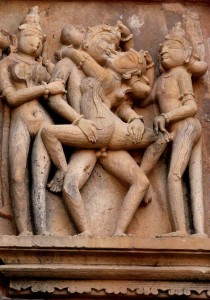Depression – Q. 330
Q: For years now I’ve been severely depressed and it doesn’t seem to be changing. What led me to Advaita, I think, was the intense desire to know what I guess I can only meaningly refer to as God.
I read a lot about how we are not our bodies and how if we can be aware of something, then that ‘something’ cannot be us. I understand all this. There is a formless awareness that appears to be prior to everything, prior to my body, my mind and the suffering of depression, I can see that.
One book I’ve read, not specifically about depression, advises that we remain with that awareness, as that awareness that is prior to both body and mind. However, I find this difficult. The body and mind come out of the Self and thus must be the Self. Beyond this the reasoning and experience of it gets quite subtle, but I’ll give it my best shot. Yes, there is an awareness that is before the mind and body, something that you might call the Ultimate subject, but It is only apparent because of the body and mind – without the body and mind, the Self wouldn’t know itself. Continue reading →



